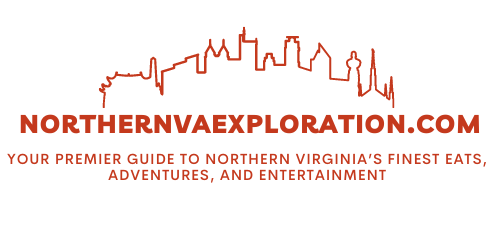In this article, I will be discussing the quality of public schools in Northern Virginia and exploring alternative education options that are available to students in the area. Education is a vital factor in shaping the future of young minds, and parents and students need to have access to reliable information about the schools in their community. Whether you are a concerned parent or a student looking for a different learning experience, this article aims to provide you with valuable insights and options that will help you make informed decisions about education in Northern Virginia.

Public School Ratings in Northern Virginia
Overview of Public School Ratings
When it comes to choosing a school for their children, parents in Northern Virginia have an abundance of options. One of the key factors parents consider is the rating of the public schools in their area. School ratings provide valuable insights into the quality of education and overall performance of a school. In Northern Virginia, public school ratings are determined by various factors, including academic achievement, student-teacher ratios, diversity, extracurricular opportunities, and parent satisfaction.
Factors considered in rating public schools
Public school ratings in Northern Virginia take into account a wide range of factors. Academic achievement is a significant consideration, with standardized test scores playing a crucial role in determining a school’s rating. Factors such as graduation rates, college acceptance rates, and Advanced Placement (AP) course offerings are also evaluated. Additionally, student-teacher ratios, teacher qualifications, and the availability of special education programs are taken into account. Diversity and inclusivity, as well as extracurricular activities and parent satisfaction, are also considered in the rating process.
Comparison of public school ratings in different counties
Each county in Northern Virginia has its public school system, and these systems can vary in terms of their ratings. Fairfax County, for example, is known for its highly rated public schools, with many schools earning top scores in state and national rankings. Loudoun County also boasts a strong public school system, with a focus on advanced academic programs and high graduation rates. Arlington County and Prince William County are known for their diverse and inclusive school communities. It is essential to consider the ratings of public schools in different counties when making educational decisions for children in Northern Virginia.
Impact of public school ratings on communities
The ratings of public schools can have a significant impact on the communities they serve. High-performing schools often attract families looking for quality education, leading to increased property values in those areas. Additionally, strong public schools contribute to a sense of pride and community engagement. On the other hand, schools with lower ratings may struggle to attract families, which can harm the community as a whole. Recognizing the importance of public school ratings, many communities in Northern Virginia actively work to improve their schools and support initiatives that enhance overall educational quality.
Alternative Education Options in Northern Virginia
Charter schools
Charter schools offer an alternative to traditional public schools, providing more flexibility in curriculum and teaching methods. In Northern Virginia, charter schools have gained popularity due to their focus on specific educational approaches or themes. These schools operate under a charter, which outlines their goals and accountability standards. Charter schools often have a smaller class size and offer specialized programs, such as STEM or performing arts education.
Private schools
Private schools in Northern Virginia offer families the opportunity to choose an education tailored to their child’s specific needs and interests. These schools often have smaller class sizes, allowing for more individualized attention. Private schools also offer a range of extracurricular activities, including sports, arts, and clubs. While private schools typically require tuition fees, many offer financial assistance programs to make education accessible to a broader range of students.
Homeschooling
Homeschooling is a popular alternative education option in Northern Virginia, offering families the flexibility to customize their child’s education. Homeschooling involves parents taking on the role of the primary educators, providing instruction within the home environment. In Northern Virginia, homeschooling is regulated by the state, and parents must comply with certain requirements, such as submitting a Notice of Intent and providing evidence of progress through annual assessments.
Magnet schools
Magnet schools are another alternative education option in Northern Virginia. These schools focus on specific subjects or educational approaches, attracting students with a particular interest or talent. Magnet schools often provide unique learning opportunities and specialized programs, such as STEM, visual and performing arts, or International Baccalaureate (IB). These schools typically have a competitive admissions process and may have specific criteria or requirements for enrollment.
Montessori schools
Montessori schools emphasize hands-on, experiential learning and encourage students’ independence and self-directed learning. In Northern Virginia, Montessori schools provide an alternative educational approach that focuses on the holistic development of the child. They offer mixed-age classrooms, where students learn at their own pace and engage in activities that align with their interests and abilities.
International Baccalaureate (IB) programs
The International Baccalaureate (IB) program is renowned for its rigorous and globally-focused curriculum. In Northern Virginia, schools offering IB programs provide students with a comprehensive education that emphasizes critical thinking, cross-cultural understanding, and community involvement. IB programs are designed to develop well-rounded students who are prepared for success in higher education and beyond.

Charter Schools
Definition and characteristics of charter schools
Charter schools are publicly funded schools that operate with more autonomy than traditional public schools. They are governed by a charter or contract, which outlines the school’s mission, goals, and accountability measures. Charter schools have the flexibility to customize their curriculum, teaching methods, and organizational structure according to the needs of their students. They often focus on specific educational approaches, themes, or target populations.
Benefits of attending charter schools
Attending a charter school in Northern Virginia offers several advantages. The smaller class sizes in charter schools allow for more individualized attention and personalized learning experiences. Charter schools often have a unique educational emphasis, such as STEM or the arts, which can appeal to students with specific interests or talents. Additionally, the autonomy of charter schools allows for innovation and flexibility in teaching methods, leading to more engaging and dynamic learning environments.
List of charter schools in Northern Virginia
Northern Virginia is home to several charter schools that provide alternative education options for families. Some notable charter schools include:
- Fairfax Collegiate Charter School
- Loudoun School for Advanced Studies
- Chesapeake Math & IT Academy
- Charterhouse School
- Vanguard Collegiate High School
Application process and requirements
The application process for charter schools in Northern Virginia typically involves filling out an online application form and submitting relevant documents, such as proof of residence and academic records. Some charter schools may require additional materials, such as recommendation letters or student essays. Admission to charter schools is often based on a lottery system or specific criteria, depending on the school’s policies and available spots.
Success stories of charter school graduates
Charter schools in Northern Virginia have produced many success stories, with graduates going on to excel academically and professionally. These schools have provided students with the skills, knowledge, and opportunities necessary for post-secondary education and future careers. Graduates of charter schools have gone on to attend prestigious universities, secure scholarships, and make a positive impact in various fields. Their experiences at charter schools have prepared them for the challenges and successes that lie ahead.




